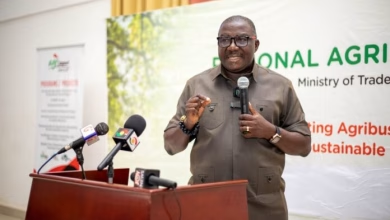In a significant step forward, Ghana’s Environmental Protection Agency (EPA) announced plans to tackle the growing problem of electronic waste (e-waste) pollution.
Dr. John Kingsley Krugu, the Executive Director of the EPA, revealed this initiative during a regional dialogue on managing mercury and e-waste pollution.
The EPA, working alongside private sector partners, will construct designated collection and dismantling centers across the country. This project represents a major milestone in Ghana’s fight for effective e-waste management and the creation of a circular economy for these materials.
Dr. Krugu emphasized that these actions are made possible by funding from the Global Environmental Facility (GEF) through the Africa Environmental Health and Pollution Management Programme (AEHPMP). This comprehensive program aims to establish a robust e-waste management system throughout Africa. The program has a multi-faceted approach: preventing pollutants from entering the environment, reducing exposure to mercury, and regulating its use within Artisanal Small-Scale Gold Mining (ASGM).
The urgency of addressing e-waste was underscored by the keynote address delivered by Ghana’s Minister for Environment, Science, Technology and Innovation, Ophelia Mensah Hayford. She highlighted a concerning statistic from the Global E-Waste Monitor, revealing that a staggering 62 million tonnes of e-waste were produced globally in 2022, with only a meager 22.3% collected and recycled responsibly.
However, Minister Hayford also acknowledged the economic importance of the ASGM sector, which contributes roughly a third of Ghana’s total gold production. She expressed concern, however, about the documented cases of mercury intoxication and poisoning within ASGM communities due to improper handling, storage, use, and disposal of the toxic metal.
Ghana is determined to strike a balance between economic benefits and environmental responsibility. Minister Hayford explained that ASGM plays a vital role in the nation’s economy, generating employment for women and youth and contributing significantly to foreign exchange through gold exports.
Dr. Krugu offered a glimmer of hope regarding the ASGM sector. The AEHPMP has developed a communication strategy to educate stakeholders, including miners, mining communities, local governments, traditional authorities, media outlets, policymakers, and others, about the dangers of mercury. This initiative aims to raise awareness and promote responsible practices.
Furthermore, the program showcases mercury-free technologies developed by Ghanaian institutions like the University of Mines and Technology (UMAT) and the Minerals Commission, alongside contributions from private companies.
These advancements offer miners alternative methods for gold extraction, paving the way for a more sustainable future.
The importance of knowledge sharing and education was emphasized by Aziz Lagnaoui, Lead Environmental Specialist at the World Bank. He highlighted the critical need for regional dialogue, acknowledging the “serious knowledge gap” on the impacts of mercury in many countries. Lagnaoui stressed that educating citizens about the detrimental effects of mercury and other harmful chemicals is paramount to achieving lasting environmental improvements. He concluded by urging participants to consider utilizing their own countries’ local resources when implementing innovative solutions.
Ghana’s commitment to tackling e-waste and mercury pollution demonstrates a proactive approach to environmental protection and economic sustainability. The collaborative efforts between the EPA, private sector partners, and international organizations like the World Bank offer a promising path forward for a cleaner and healthier future.
